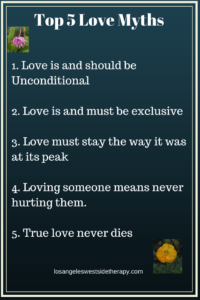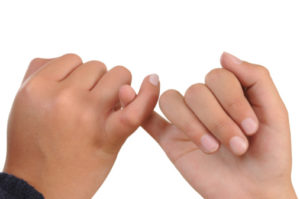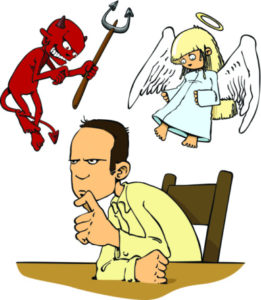Relationship Advice Tips from Dr. Jeanette Raymond, Ph.D.
Where did these myths come from?
Most of us grow up with myths about what love is and ought to be like if it was real and trustworthy. We get it from fairy tales, love songs, country music, movies, folk lore and hearing our friends and family talk about their longings. We pay attention to the “happy ever after” ending in stories and dream that we too could be valuable and worthwhile enough to inspire that kind of devotional love.
But inevitably we get disappointed, heartbroken, betrayed, abandoned, or have to share that love with others. We can’t stand it and believe that it is not normal. Something is either wrong with the person we love, or something is wrong with us!
We try hard to please those we love to inspire them to make us the one and only, or to stop hurting and abusing us.
We can’t believe that love could be anything but nurturing in an unselfish, eternally available way.
That’s a recipe for marital failure, divorce, parenting, problems with in-law interference, and infidelity.
- #1 Love Myth: is that love is and should be unconditional.
- #2 Love Myth: is that love, especially romantic love is and should be exclusive
Monogamy involves exclusivity, but love isn’t that simple. Many couples that come in for therapy involve one partner unable to tolerate their partner loving their cats and dogs, their family members or their work, their sports or their hobbies. They feel insecure when they are not exclusive in every way, and that is bound to jeopardize a relationship. I have come across people who wanted their partners to give up involvement with their children from a prior relationship in order to be exclusive. Needless to say those relationships fail before they get off the ground.
- #3 Love Myth: is that love remains the way it felt at its peak in romance, or as fierce as it was when your mother hugged and protected you at age 4!
The most common time for couples to enter therapy is a year or two into their relationship, when they look back with nostalgia at their dating days. They think something has gone wrong because they don’t feel that ‘high’ that they used to experience with one another. They work hard to get it back as if it were some loved pair of shoes that got lost in the wardrobe! They want to go backwards and then make the clock and the world stand still.
Fairy tales, love songs and movies don’t tell us what happens when the man and woman walked off into the sunset hand-in-hand. But we are supposed to imagine that they never had any worries and never argued about anything. So when in real life we have to balance our individual personal needs with that of being in a couple and family, we want to go back to that rose-colored time when things worked like magic.
Human’s change as they grow and develop. That means adjustments have to be made and without room for accommodating these shifts, a relationship dies on a bed of shame, guilt, fear and a tendency toward rigidness and mummification.
- # 4 Love Myth: is that if “you truly love me, you’ll never do anything to hurt me!” People who love each other hurt one and other all the time – usually not intentionally but sometimes intentionally if they are being squeezed and need to breathe.
- It’s called indulgence, not love!
- It’s called treating them like infants that can’t take care of themselves.
- Its called creating a dependency that isn’t natural – which is why relationships based on this myth leads to co-dependency, addiction, and abuse.
- #5 Love Myth: is that it never dies.
Love evolves and adapts to aging, circumstance and need – it can deepen or it can lessen, or both. It ebbs and flows, and isn’t static. Mostly the quality of love changes.
The Path To True, Lasting, Deep and Fulfilling Love
Romance
(sexual love of myth)
Loving the person you get to know- friend, lover, carer, teacher
(valuing personality and behavioral traits)
Sharing emotional intimacy
(being open about yourself and being open to hearing about your partner and being forgiving)
Allowing your partner to be themselves at work, socially and in family life
(true love or almost!)
Appreciating that taking care of themselves doesn’t mean they don’t love you
( you have to take care of yourself and your partner – interdependence, not dependence)
AUTHOR OF ‘Now You Want Me, Now You Don’t! Fear of Intimacy: ten ways to recognize it and ten ways to manage it in your relationships.”
Copyright, Jeanette Raymond, Ph.D. 2015
You might also like:
Is sex after a fight your way of avoiding emotional intimacy
Relationship rules can harm a marriage
Are you and your partner getting off on addictive rage?
Disclaimer: this article is for informational and educative purposes only. Dr. Raymond is not responsible for any reactions you may have when reading the content or using the suggestions therein. Interacting with this material does not constitute a therapeutic relationship with Dr. Jeanette Raymond.










